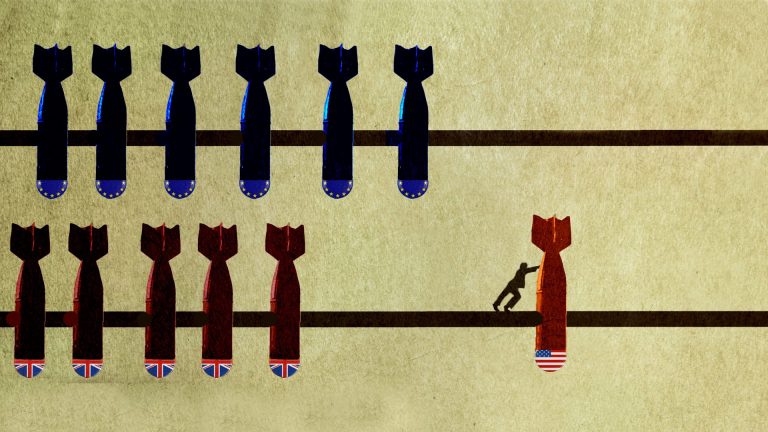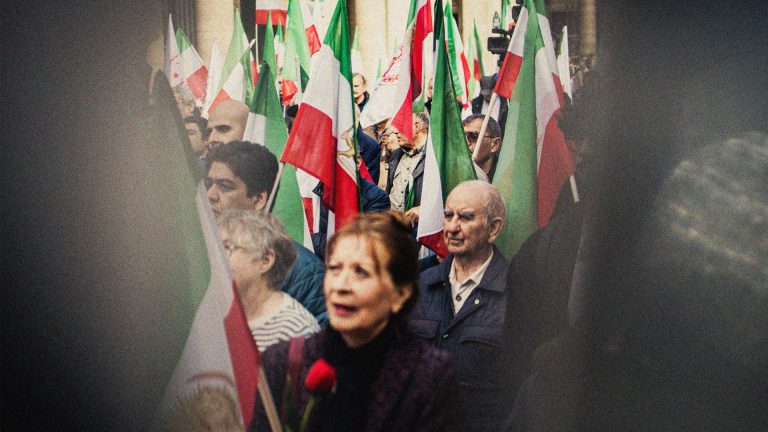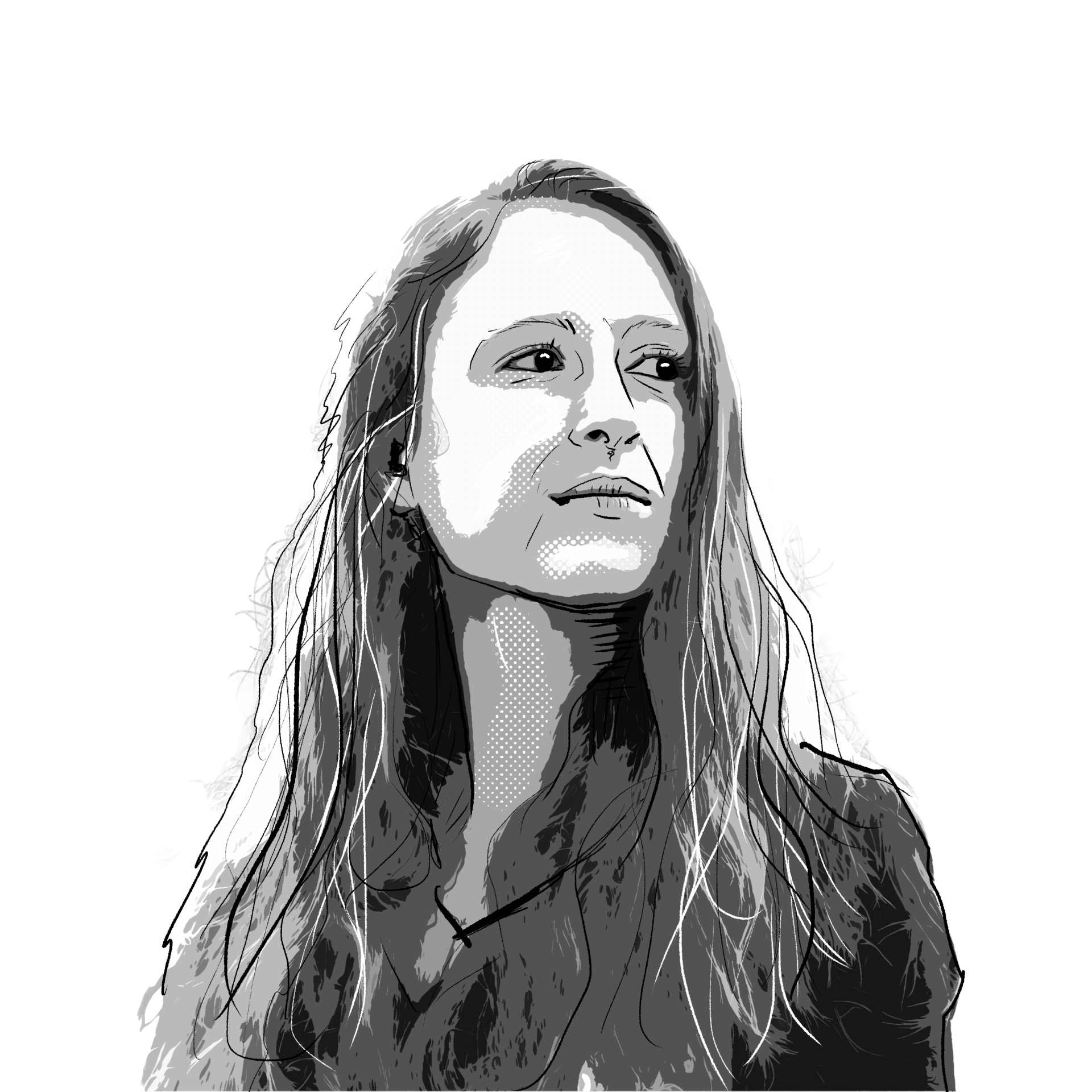IAN WALKER looks at the complex legacy of Germany’s first post-war chancellor, a man who helped unify Europe and rebuild West Germany but who left a nation divided not only between East and West but also between the war generation and the baby boomers who came after
In April 1933 Konrad Adenauer, the former mayor of Cologne, was on the run. The previous month had seen Hitler seize power with the Enabling Act which effectively made him dictator. Adenauer had been warned by one of his deputies that he was to be ‘liquidated’. A unit of Brownshirts were planning to arrest him as he arrived at his office – and then were going to throw him from the window. Adenauer began to search for a safe haven.
Adenauer, like many of Germany’s senior politicians, had underestimated the Nazis. Instinctively, because he was a Catholic and a conservative, he was preoccupied by the threat from the communists and the socialists. But he had earned the opprobrium of the Nazis when he had refused to meet Hitler when the latter had visited Cologne as part of the 1933 election campaign, and also when he had refused the Nazis permission to hang their banners from one of Cologne’s iconic Rhine bridges.
These events were more than enough for the thin-skinned Nazis to want vengeance, but the substantial problem that the Nazis had with Adenauer, the one that got to the very heart of his politics as well as theirs, was over the issue of the post-First World War settlement imposed on Germany.
Adenauer was from Cologne, he was a Catholic Rhinelander and like many from his background he was anti-Prussian and anti-Berlin. This aspect of his politics had been nascent prior to the First World War – his loyalty to the Kaiser and Germany in that war was unquestionable. After that war, however, this anti-Prussian outlook became explicit. He blamed the war, and therefore Germany’s defeat, on the Prussians and their warmongering ways.
Adenauer believed that culturally, politically and ideologically the Rhineland had more in common with France and the Low Countries than it did with Prussia. Throughout 1919, he argued for a pro-French independent Rhineland State. This, he felt, would forestall any attempt by the French to occupy the region but would also take the Rhineland area out of the sphere of influence of Prussia and wed it to France and Western Europe. Also in 1923, at the height of the German currency crisis, he argued for the creation of a Rhineland currency that would be tied to the French franc.
These arguments were the antithesis to fascist ideology. The French and British governance of the Saar region after the First World War was, for the Nazis, Germany’s shame, and it had to be avenged. For Hitler any concession over the question of German sovereignty was national betrayal.
Also Adenauer’s arguments for economic and political integration between western Germany and Western Europe were the first arguments for something that would later become the European Union. But that was a long way in the future. Adenauer’s most pressing concern in 1933 was to stay one step ahead of the Brownshirts and to just stay alive.
He turned to the church for help. A former school friend had just become abbot of the Benedictine monastery of Maria Laach. It was agreed that Adenauer could stay in the monastery for physical and spiritual rejuvenation. More importantly it also meant he was hidden away from the Brownshirts.
Life in the monastery was tedious. Barely a month before, Adenauer had been running a major European city. He had been a senior politician for the Centre Party and was one of Germany’s major conservative political figures, and here he was now with nothing much to do except write letters, attend Mass and Vespers and spend time in the monastery garden. It must have felt like quite a fall for a man who had risen way beyond his class and background.
Konrad Adenauer was born in Cologne in 1876. His father Johann Konrad had been a soldier and had risen as far in the Prussian army as a man without an education ever could. After leaving the army Johann Konrad joined the civil service and again rose as far as a bright but uneducated man was able.
Because Johann Konrad was so aware of the limits that a lack of education could have on career advancement in the structured world of Wilhelmine Germany, he ensured that his children would not face the same restrictions.
Adenauer was a diligent and hardworking student and in 1894 he passed his Abitur. Then, with his father’s financial support,he went on to university and then on to a career in law. This legal career took him into political circles and in 1906 he became a local councillor in Cologne. What followed was a meteoric rise in local politics.
At this time Adenauer was, like many other Germans, beguiled by the Kaiser’s imperialist rhetoric. By his early 30s Adenauer was Cologne’s deputy mayor and when the warmongers got their way and dragged Europe into the First World War, he did a magnificent job in keeping Cologne running both as a functioning city for its civilians, but also as one of the major military supply and transportation bases.
In 1917, whilst only just in his 40s, Adenauer became mayor. His first job was to steer Cologne through Germany’s defeat in the war, after which the problems came thick and fast. While so much of Germany seemed to be collapsing, he kept the city functioning and managed to avoid any sort of local revolution. He then had to continue to run the city after it was occupied by the British as part of the post-war settlement.
Adenauer remained mayor right through the Weimar years, offering his city a degree of stability that the country, which went through 15 chancellors during the same period, lacked. Cologne prospered. Large parks were built on the site of the old fortifications and in areas such as social planning, local governance and housing the city became a model for the rest of Germany. As such, Adenauer became one of Germany’s most high-profile conservatives. It was assumed that he would, at some point, launch a bid to become chancellor.
But Adenauer was too canny for that. His political base in Cologne was secure and he had influence in Berlin. He may well have become chancellor but it was very likely that then his political career would be over in a year. He was ambitious and quite ruthless but one of the reasons why he had thrived in extremely difficult circumstance was that he was a brilliant political tactician and rarely missed a trick – perhaps the only major political mistake he made throughout his entire career was underestimating the Nazis.
And it was following on from that mistake that he found himself on the run and in hiding and bored out of his mind in a monastery. And it was because there so little to do in the monastery that Adenauer, whilst there, did something he had never really done up to that point. He read books on political theory.
Adenauer’s reading habits had only ever been to provide relief from the stresses of public office – he liked thrillers. He was no intellectual, he had no interest in philosophy or political theory or theological debate. But whilst in the monastery he did turn to two Papal Encyclicals (an Encyclical is a sort of Papal positioning paper). The two that he read were Pope Leo XVIII’s Rerum novarum (1891) and Pope Pius XI Quadragesimo anno. (1931).
These two Encyclicals were written by the Catholic Church in response to the rise of capitalism, the creation of class divisions and the emergence of the modern state. The first Encyclical, Rerum novarum, argued that the ownership of private property was a principle of natural law. It also argued for the dignity of the individual and for the rights of workers. Its conclusion was that the state’s power should be limited and that socialism was an abomination and it was the job of the church to heal the splits in society.
The second Encyclical, Quadragesimo anno, was written as a response to Rerum novarum and its rather woolly ‘the church will save us all’ conclusion – one that looked rather absurd after the First World War, Russian Revolution and Great Depression. This second Encyclical acknowledged the importance of the state in ensuring the rights of workers or the poor. It still argued for the importance of the principle of private property but also acknowledged there were circumstances where public or state ownership could support the greater good. It also dismissed communism as abhorrent and while acknowledging that socialism had appeal it was also morally wrong because these collective actions were motivated by a desire for material, and not spiritual, advantage.
In 1933, defeated and in hiding and by now in his 50s, Adenauer must have thought that his reading these ideas about the relationship between the state, capital and labour, were purely an intellectual exercise. But they weren’t, because Adenauer’s political career wasn’t over. In fact his political career up to that point was merely a prologue to the main story. Konrad Adenauer would return to politics and would rebuild Germany and Europe and he did so using those ideas about Western European integration that he had in the aftermath of the First World War and also with the ideas that he found in those two Papal Encyclicals.
But that was in the future. His immediate concern was to survive the Nazis and the Second World War. This he did with a combination of cunning, fortune, the kindness of others and the calling in of old favours. After a while he was even able to come out of hiding. However every now and then the Nazis went after him again – he spent time in prison and was put on lists for deportation to the east (to be murdered) but somehow, miraculously, he survived.
On May 15, 1945, the Americans captured the town of Rhönsdorf, not far from Cologne, where Adenauer was now living. On the next day they made him the mayor of Cologne. After 12 years of Nazi rule, after the horror and the terror and collapse of all civilised values, the city had a leader who was Christian, who believed in democracy, and who believed in a different and better Germany and a different and better Europe.
And then the British sacked him.
Cologne was in the British sector of occupied Germany and Adenauer had to work closely with the British military. The British were preoccupied with getting the utilities functioning, stopping disease and the process of de-Nazification. Adenauer was thinking of how to build a new Germany – and he was nearly 70 and stubborn. It was not a productive working relationship. But by being sacked, Adenauer was able to focus on more than just Cologne. Throughout Germany, conservative politicians were starting to form political parties. This process began almost spontaneously with various groups in various cities organising around the values of Christianity and democracy. One thing all were aware of was the ease with which the Nazis had taken advantage of the German multi-party system in the Weimar Republic. These Christian democratic parties had to be unified, which they achieved with the creation of the Christian Democratic Union (CDU) – though the Bavarian Christian Social Union, a sister party, remained separate.
Adenauer fought hard to keep the CDU as an anti-socialist and anti-communist party, something which the Americans, British and French supported in those early years of the Cold War. In 1948 he was chairman at the drawing up of the Basic Law for the Federal Republic of Germany, the basis of the West German State, and then, in 1949, he became the first Chancellor of West Germany.
By now he was 73 and many thought his chancellorship would be short – it wasn’t. He would stay as in the role for 14 years. More significantly, what he achieved during those years has shaped German and European politics to this day. And at the heart of this new Germany were those two ideas that had come during the chaos of post-First World War Germany and from what he read in those two Papal Encyclicals, while hiding from the murderous Brownshirts. Adenauer’s chancellorship was based on the principles of west European political integration, and a form of politics where the state balanced the interests of capital and labour.
Adenauer was not alone in pushing forward these ideas. Among others were the Belgian Paul-Henri Spaak, the Italian Altiero Spinelli, the Frenchmen Jean Monnet, Robert Schuman and Charles De Gaulle. Even Winston Churchill played a part in the creation of the EU. But it was Adenauer who worked tirelessly to reconcile France and Germany at the heart of a new Europe. That peaceful and prosperous Europe which he built and which has survived and prospered to this day.
And the balancing of the interests of capital and labour by the state? Adenauer certainly liked this idea and championed it but it was really his finance minister Ludwig Erhard who made it happen. This was the so-called Ordoliberalism economic model – the social market economy with its balancing of interests between business and the workers. And it worked. Post-war Germany’s Wirtschaftswunder (economic miracle) continues to this day. It is the model of economic development to which all other national economies should aspire.
Adenauer had his faults. The biggest was his allowing former members of the Nazi Party back in to the highest levels of business and government in West Germany. His argument was that the country needed the expertise. The consequence was that some truly terrible men were allowed to continue their lives as if nothing had happened.
And continuing as if nothing had happened was very much Adenauer’s approach. The Germany he created just didn’t look back. There was a unhealthy silence at the heart of Germany’s sense of itself. So, for example, the popular culture of Adenauer’s years was dominated by the bland and anodyne Schlager music and by the idea of Heimat – a sort of mawkish sentimental longing for home. Think of Cliff Richard singing songs about how lovely the Cotswolds are – a German equivalent of that is how bland most German culture was in the Adenauer years. In and of itself you can say so what? But this trite sentimental garbage was the sound of a country not facing up to its past, and to Hitler, and the Final Solution, and to the horror. It was not healthy.
The other major fault with Adenauer was whilst formally, he wanted Germany reunified – in reality he didn’t. He hated the east of Germany, and now Prussia, a communist Prussia, was behind the Iron Curtain. He had got what he wanted.
Adenauer’s contempt bordered on racism. Supposedly each time his train crossed into the east he drew the curtains, saying he was now entering Asia. He was a Cold War warrior and he liked the border that kept the Prussians and the communists outside Western Europe.
These faults cannot be airbrushed away – especially his tolerance of the ex-Nazis. However, despite this, Adenauer was one of the truly great politicians of the last century. One of his post-war political slogans was ‘No Experiments’. He presented himself as safe and steady and secure and of course that had a massive appeal to the German people. But what he achieved was truly radical. It was a great and successful experiment.
He rebuilt a country which in 1945 was morally and physically in ruins. He helped create a system of government that has bought sustained growth and social justice for over half a century to Germany. And he was one of the architects of the project that has brought over 50 years of economic growth and peace to Western Europe.
The fact that these things define our politics 50 years after his death is a measure of how important a political figure he was. The fact that the tiny lightweight political figures of today – the Farages and the Mays and the Le Pens, who have never and will never build anything – look so pathetic as they struggle to destroy everything he built, is measure of what a giant political Adenauer was.
Ian Walker is a journalist and former museum curator living in Munich








